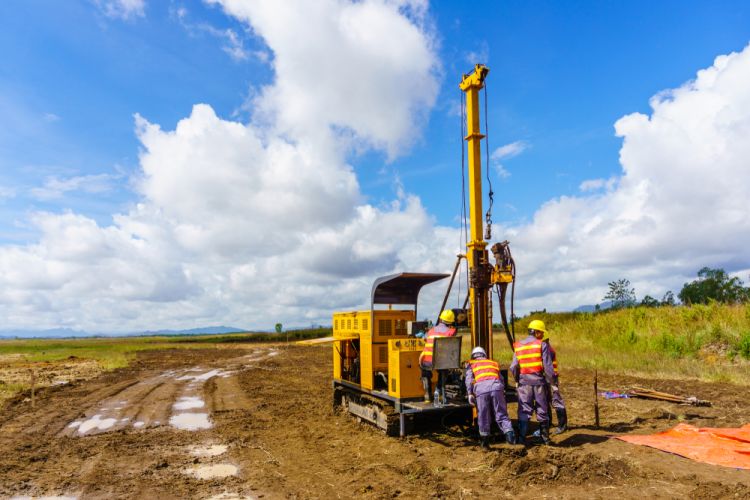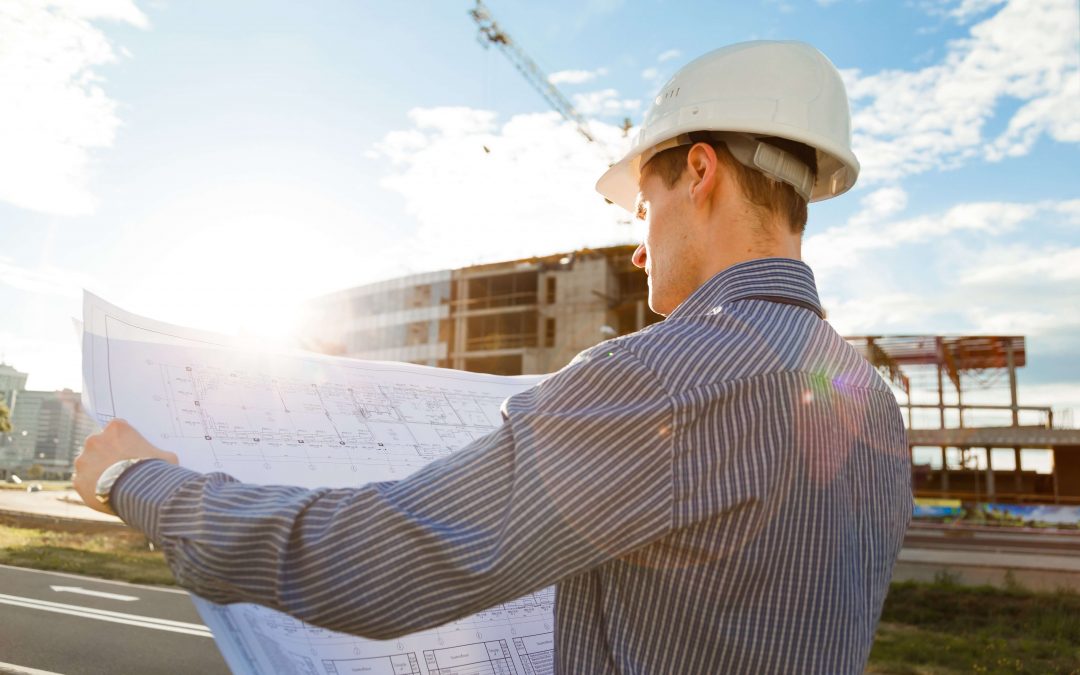7 Easy Facts About Specialized Geotechnical Engineering Solutions Shown
Table of ContentsThe Ultimate Guide To Specialized Geotechnical Engineering SolutionsSpecialized Geotechnical Engineering Solutions Can Be Fun For AnyoneThe smart Trick of Specialized Geotechnical Engineering Solutions That Nobody is DiscussingHow Specialized Geotechnical Engineering Solutions can Save You Time, Stress, and Money.
They carry out site investigations, collect samples, do research laboratory tests, and analyze data to evaluate the suitability of the ground for building projects. Based on their searchings for, geotechnical designers give recommendations for structure layout, slope security, keeping structures, and reduction of geotechnical hazards. They work together with other experts, such as designers, architectural designers, and building groups, to ensure that geotechnical factors to consider are incorporated right into the total job layout and execution.

Structure Design: Geotechnical designers play an important role in developing foundations that can safely support the desired structure. They examine the dirt conditions and tons demands to determine the proper foundation type, such as superficial structures (e.g., footings), deep structures (e.g., heaps), or specialized methods like dirt improvement. They think about factors such as negotiation limitations, birthing capability, and soil-structure interaction to establish ideal foundation layouts.
The 6-Second Trick For Specialized Geotechnical Engineering Solutions
Below are some sorts of geotechnical engineers: Structure Engineer: Structure engineers specialize in designing and assessing foundations for frameworks - Specialized Geotechnical Engineering Solutions. They assess the soil problems, tons needs, and site characteristics to figure out one of the most suitable structure type and layout, such as shallow foundations, deep structures, or specialized techniques like pile structures
They perform area screening, gather examples, and analyze the accumulated data to define the soil residential properties, geologic formations, and groundwater problems at a site. Geotechnical Instrumentation Designer: Geotechnical instrumentation engineers concentrate on monitoring and gauging the behavior of soil, rock, and frameworks. They mount and preserve instrumentation systems that keep an eye on elements such as dirt negotiation, groundwater levels, slope activities, and structural variations to assess performance and give very early cautions of prospective problems.
In the workplace setting, geotechnical designers utilize specialized software application devices to carry out computations, develop layouts, and assess data. Specialized Geotechnical Engineering Solutions. They prepare reports, evaluation task specs, communicate with customers and employee, and coordinate project tasks. The office setting offers a conducive atmosphere for study, evaluation, and cooperation with other professionals associated with the project
They often go to task websites to perform site investigations, evaluate geotechnical conditions, and gather information for evaluation. These brows through include taking a trip to various areas, often in remote or challenging terrains. Geotechnical engineers might execute soil sampling, conduct examinations, and display building activities to guarantee that the geotechnical facets of the task are being carried out properly.
An Unbiased View of Specialized Geotechnical Engineering Solutions
Geotechnical designers likewise work in specialized geotechnical laboratories. Geotechnical laboratory designers function thoroughly in these settings, handling screening equipment, operating tools, and videotaping information.
Maintaining Wall surfaces: Producing wall surfaces that keep back soil to protect against landslides and offer stability on sloped surfaces. Embankments and Earthworks: Designing embankments for roads, railways, and dams to guarantee they continue to be stable under stress. The mining market depends greatly on geotechnical design to make sure the security and longevity of its operations.
With this in mind, we have developed our program to prepare pupils for success. The Geotechnical Engineering program at the University of Delaware offers opportunities for advanced research and research in: Soil and rock auto mechanics Soil-structure interaction Constitutive modeling Computational geomechanics Foundation and earth frameworks design Ground enhancement Slope stability and landslide stablizing Liquefaction of dirts and earthquake engineering Laboratory characterization of geomaterials and soil reinforcement Environmental geotechnics Given the strong requirement for renovation to our country's infrastructurethe American Culture of Civil Designers gave the U.S.
Geotechnical design is a branch of civil design; nevertheless, it involves using clinical techniques and principles to collect and translate the physical residential or commercial properties of the ground. Geotechnical engineers are included in all stages of the style of structures, from idea to building and construction. Their job is important in the style and planning process as they examine the stability of soil, clay, silt, sand, and internet rock, prior to construction beginning.
How Specialized Geotechnical Engineering Solutions can Save You Time, Stress, and Money.
This is followed by a ground investigation based upon the searchings for of the workdesk research study and entails test matching and sampling to reveal any prospective problems. Geotechnical designers function within multidisciplinary groups, sustained by intermediate and junior engineers in addition to by CAD technicians. As a senior geotechnical engineer on a hydro plant project, tasks may include taking part in technological reviews (e.g., peer testimonials), tailings dam examinations, dam safety reviews, and various other researches connected to the design and construction of mine waste centers.
While some professionals are experts exclusively in geotechnics, others may function under titles like engineering rock hound or ground engineer within similar capacities. As a geotechnical engineer, you'll need to: develop and keep relationships with clients and various other experts included in the site, throughout each projectmaintain safety and security criteria on site bear in mind expense effects when you make recommendationsstudy geological maps and airborne photos from a series of sources and from various time periodsexamine building and construction plans to see exactly how feasible they are based on your understanding of the siteinvestigate threats or geological risks for the sitesearch for eco delicate attributes, such as garbage dump beginning to establish factual and expository ground modelsplan field investigationsdrill and evaluate samples of bedrock, dirt, groundwater and additional materials monitor various other professionals on sitesolve technological problems as they occur, such as unanticipated frameworks at drill sitesmonitor problems throughout and after building and construction to make certain structures are secure in the brief and lengthy termadd data collected on website to your first researchcreate geotechnical computations, drawings, and 2 or three-dimensional computer system models translating the datamake referrals concerning the suggested use the website.
There are whole lots of possibilities to meet new individuals, as you'll deal with a series of experts at blog every website. The job can be demanding as you might be accountable for the safety of others while on site. There is additionally a high degree of financial duty, as the referrals you make can have major price implications.

Comments on “Specialized Geotechnical Engineering Solutions Fundamentals Explained”